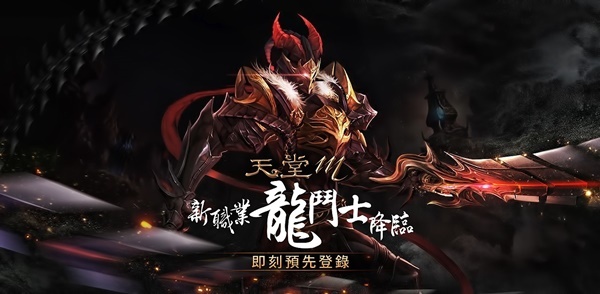Mobile & Internet
Korean gaming industry faces deeper Chinese invasion
[THE INVESTOR] Thousands of game industry officials gathered at the Taipei Game Show 2019 that kicked off on Jan. 24 to participate in the trade fair’s largest-ever B2B section. Blaring out from a 32-meter wide and 9-meter high water projection screen -- the biggest the city has ever seen -- was a 3D video introducing a new “class,” or occupation, from NCSoft’s blockbuster mobile game “Lineage M.”
 |
The 15-minute clip is just the beginning of the all-out showcase of the mobile version of legendary MMORPG “Lineage.” Mini games using augmented reality and events featuring elements of the game, as well as media conferences are being held at the game show’s largest booth to further tap into Taiwan where “Lineage M” has been dominating Google Play ever since it was rolled out in December.
Korea has been a strong force in the US$162 billion global gaming market, ranking fourth in terms of market share following the US, China and Japan, according to the data released by the Ministry of Culture and Sports. Exports in 2017 surged 80.7 percent on-year to US$5.92 billion.
Nexon and NCSoft posted over 2 trillion won (US$1.78 billion) revenue last year, closely followed by Netmarble. The game developer was the fifth-largest across the world in mobile game sector by revenue last year on the heels of Tencent, NetEase, Activision Blizzard and Bandai Namco. This year, it is poised to leap further with the scheduled launch of “BTS World,” a collaboration with the global K-pop sensation.
Muscled out by China
The industry, however, has been losing its steam. In particular, it has been failing to relive the boom it enjoyed in the early 2000s. It is faced with fierce competition from global rivals, while pressures are mounting from the slew of regulations.
The biggest challenge comes from China, which accounted for as much as 60.5 percent of exports in 2017, in addition to being the largest market worth US$37.9 billion, according to a statistics by Newzoo. Since the diplomatic row between the two countries over deployment of THAAD, however, not a single Korean game has been given approval for distribution in China, including those channeled through Tencent.
Alarm bells began ringing even more loudly this month when Nexon founder Kim Jung-ju hinted that he would sell his entire stake in NXC, holding company of the online gaming company. It was even more of a surprise since Nexon, listed in Japan, would be the first in the industry to log in over 1 trillion won operating profit when it officially announces its 2018 earnings and is expected to set another record this year.
Kim owns 98.64 percent of NXC that is estimated to be worth close to 9 trillion won. Although sale of the controlling stake is yet to be officially confirmed and financial advisers Deutsche Bank and Morgan Stanley are keeping it mum, those in the know say Tencent as well as private equity fund firms such as Carlyle and MBK Partners are vying to acquire it.
Tencent is the official distributor of Nexon’s long-time hit MMORPG “Dungeon Fighter” that still generates 1 trillion won revenue accounting for almost half of the developer’s revenue. When the US$400 billion Chinese internet heavyweight does acquire Nexon, it will not only be able to cement its global position but also secure dominance in Korea where it already owns major stakes in Netmarble and Kakao Games.
According to a recent Bloomberg report, Tencent is evaluating a possible bid and could team up with some investment funds, with options including buying part of NXC’s 47 percent or the company itself.
There also are qualms about the possibility that the leading game company may be swallowed up by a Chinese company. Nexen owns multiple intellectual properties , and losing it to a foreign entity will be a grave loss for the Korean gaming industry, according to many close watchers.
By Hwang Youmee (glamazon@heraldcorp.com)








